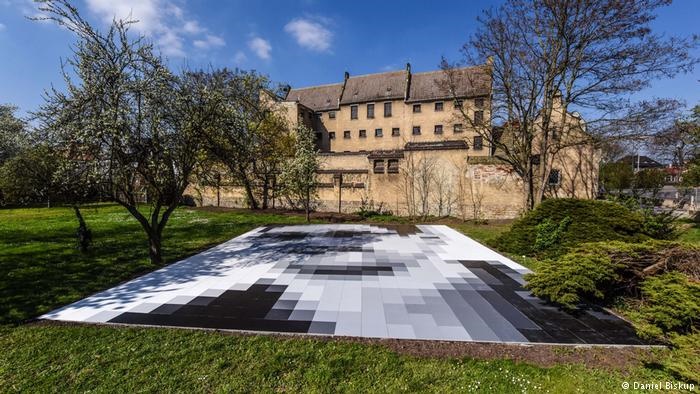What links the 16th century reformation with our age of modern media and digitalisation?
 For many reasons the present exhibition in Wittenberg/Germany on “Luther and the Avantgarde” is worth a visit. Artists with a world reputation have been invited to present works on their perception of Luther and the reformation in the cells of a former prison. A contradiction in terms: the reformation is celebrated as promoting freedom and the artists’ perception is presented in a former prison.
For many reasons the present exhibition in Wittenberg/Germany on “Luther and the Avantgarde” is worth a visit. Artists with a world reputation have been invited to present works on their perception of Luther and the reformation in the cells of a former prison. A contradiction in terms: the reformation is celebrated as promoting freedom and the artists’ perception is presented in a former prison.
It is amazing to see how many of the artists’ works deal with modern media. But this does not come as a total surprise as it is often stated that Luther used the modern media of his time, the printing press, in order to spread his ideas. Without these possibilities, it is said, the reformation would have been far from being as successful as it was. The artists’ group “Robotlab” installed a robot in Wittenberg, which writes within nine month all chapters of the bible. The artists say, Luther`s writing also were an act of freeing himself from his cell. Achim Molné is presented with a digital produced picture of Edward Snowden in the garden of the prison, thus merging the digital world with the real environment of Wittenberg. He says: “The Whistle-Blowers Luther and Snowden both aimed at exposing systematic injustices.” And both used the modern media of their times.
Of course, there are also the critical aspects. The Chinese artist Zhang Peili enriches the exhibition with a set of radios exposed in a circle. Their sounds are mixing to a sound wall in the cell of the prison. And a microphone is moving from radio to radio giving dominance to one sound for a while. Can we still distinguish the different voices in a time when there seems to be an overkill of voices and information? And who is the master of the microphone giving dominance to one or the other of the many voices? Another Chinese artist, Xu Bing, invites visitors in a messy office environment to translate biblical stories into globally understood symbols using the computer. Does this method transform the message into something trivial?
I would not call myself a computer literate. I use the computer and new social media like many others: I enjoy the possibilities being in touch with many long-standing and new friends all over the world. I try to protect my computer to the best of my knowledge and I try to be reflective on what I share publicly. I am interested as to how modern media, for instance, can contribute to establishing a European public, how new media can help civil society to share a different world view compared to some of the public news.
But I am also aware that there is much more to it. What´s about big data? Who controls the net? Did we already become slaves of other peoples’ algorithms? What´s about the internet of things? And most important: what are the ethical implications. What is the role and the underlying perception of human beings? Questions over questions. Certainly the digitalization and the use of modern media changes our world. It is a revolution, at least as life changing as the reformation and the invention of the printing press at Luther´s times.
It is with these questions and perceptions that I will arrive at the forthcoming Oikonset Annual Conference, which will take place in Flehingen/Germany, 6-10 September 2017 under the theme “The Digital Revolution and its Children”. I am looking forward to learn more about the opportunities and challenges and to discuss with friends from all over Europa about their perspective. It is for sure that the use of modern media and digitalisation are issues with huge ethical implications to be discussed by Oikosnet members in a European and global context.
Editorial by Rüdiger Noll, Executive Secretary of Oikosnet Europe

